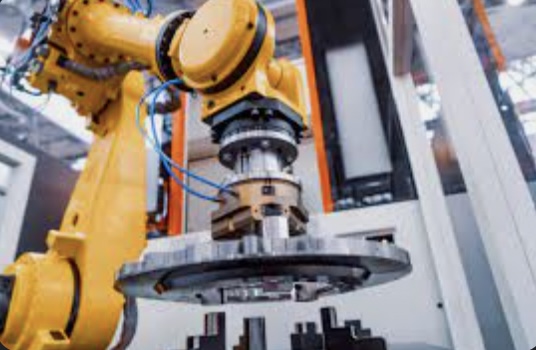The Advancement of Precision Automation and Robotics in the Manufacturing Industry

The manufacturing industry has undergone a significant transformation in recent years, with the integration of precision automation and robotics playing a vital role in this change. Precision automation and robotics refer to the use of advanced technology and machines to improve the accuracy, speed, and efficiency of manufacturing processes.
These technologies such as robotic integrators have revolutionized the way manufacturers approach production, allowing for more precise and consistent output, as well as increased productivity and cost savings. They play a critical role in the implementation of precision automation and robotics in the manufacturing industry.
Purpose of Precision Automation and Robotics
The primary purpose of precision automation and robotics is to increase the accuracy and consistency of manufacturing processes. These technologies can be used to perform a wide range of tasks, from simple assembly to complex machining operations. By automating repetitive and monotonous tasks, manufacturers can reduce the risk of human error and increase the speed and efficiency of their production processes.
Additionally, precision automation and robotics can be used to improve the quality of products by ensuring that each item is produced to eRobotic Integrators. These companies specialize in designing, building, and integrating robotic systems to meet the specific needs of manufacturers. They work closely with their clients to understand their unique requirements and develop customized solutions to improve the accuracy, speed, and efficiency of their production processes.
Robotic integrators also provide ongoing maintenance and support to ensure that the systems continue to operate at peak performance. As technology has advanced, robots have become smaller, precise, and versatile, performing a wide range of tasks with high accuracy and efficiency by leveraging machine learning algorithms. Advanced sensors and control systems let robots to better sense their environment and provide accurate responses in-line with changes in that environment. Hence artificial intelligence (AI) and machine learning (ML) algorithms enabled robots to become adaptable and arrive at decisions on their own.
The Future of Precision Automation and Robotics
Robotic integrators have also evolved and are ideal for installing and setting up robots in industrial settings. They have the capability to install and set up robots, and to design a program that performs necessary tasks. They are adept at ongoing maintenance and support to ensure optimal performance of the robots. The future of precision automation and robotics in the manufacturing industry is bright.
As technology continues to advance, we can expect to see even more sophisticated and versatile systems that can handle a wider range of tasks with even greater precision and efficiency. Additionally, the integration of artificial intelligence and machine learning into these systems will allow for greater autonomy and self-optimization, leading to even more significant improvements in productivity and cost savings. Precision automation and robotics have revolutionized the manufacturing industry by improving the accuracy, speed, and efficiency of production processes. These technologies have a wide range of applications in various industries and are critical for achieving precise and consistent output.
Robotic integrators play a vital role in the implementation and maintenance of precision automation and robotics systems. With the continued advancement of technology, we can expect to see even more sophisticated and versatile systems in the future that will lead to greater productivity and cost savings for manufacturers. The use of robots has increased the rate of production and reduces the risk of human error.
This leads to a more efficient and cost-effective manufacturing process. Robotic integrators are extensively used in quality control and inspection for safety and performance standards. In the aerospace industry, precision automation and robotics are used to manufacture complex components such as jet engines and spacecraft. Robotics helps in managing repetitive tasks like welding and milling. It increases efficiency and exposure to risk is minimized.
In the medical device industry, there is extensive use of precision instruments and implants production for performing functions such as cutting and polishing. Hence, they become most sought after for production of semiconductors, cell phones and other electronic devices. Robotic integrators help in automating the tasks of material handling and testing. Overall efficiency and human error are reduced.




























